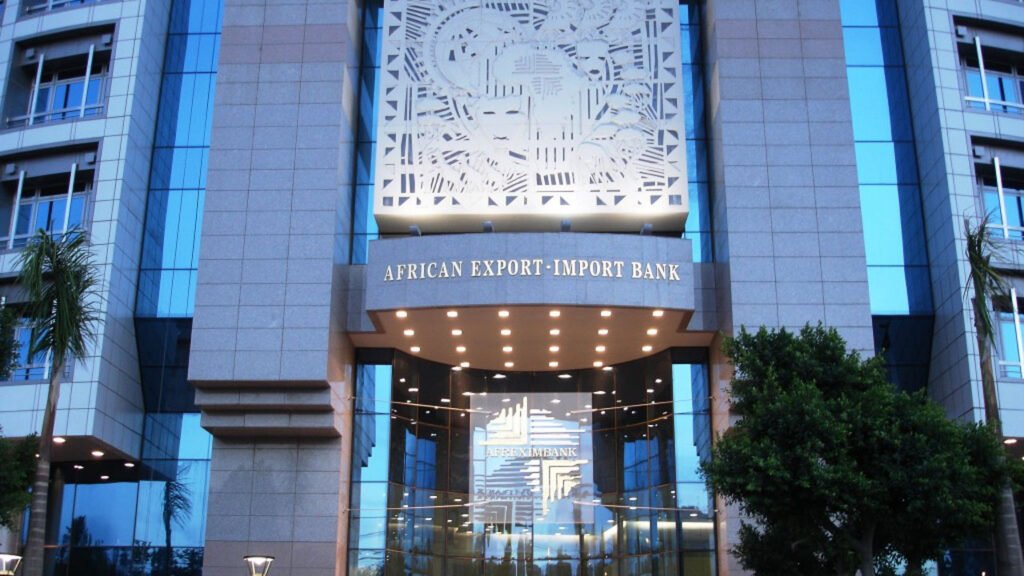The impact of the new coronavirus pandemic on economic output is well-known. But a new study, The African Trade Finance Survey Report, carried out by the African Export-Import Bank (Afreximbank) in collaboration with the United Nations Economic Commission for Africa (ECA), the African Development Bank (AfDB) and Making Finance Work for Africa Partnership (MFW4A) reveals the impact of the pandemic on financing trade in African countries.
The survey also captured pre-pandemic trends in trade finance and one of the key findings was that banks in Africa took less interest in financing trade even as default on loans issued to finance trade decreased. Know-your-custom (KYC) requirements was found to have negatively impacted the volume of trade finance African banks undertook before the pandemic.
Surveying 185 financial institutions across Africa, the report which is the first of its kind provides a better understanding of the trade finance landscape across the continent and how it has particularly evolved as COVID-19 pandemic lingers. The banks surveyed represented more than 58% of total assets held by African banks.
With COVID-19 lockdowns, border closures, travel bans, social distancing, and other containment measures deployed to contain the infectious disease, the world suffered a major downturn. Global output, which was pre-pandemic forecast to expand by 3.3 percent in 2020 contracted by about 3.5 percent, and Africa suffered its first economic recession in 25 years. In a similar vein, global trade, which was forecast to expand by 2.7 percent in 2020, contracted by 9.2 percent.
Also Read: https://arbiterz.com/afcfta-to-generate-84-billion-in-additional-exports-afreximbank/
In the second quarter of last year (2020), the reduction in global growth and trade was particularly significant when the implementation of containment measures liberally sliced off growth in economies all over the world.
The survey detailed the massive capital outflow from emerging and developing market economies as a result of the new coronavirus pandemic. Portfolio outflow from all emerging markets in Q1 2020 was over $100 billion; investors pulled $5 billion out of Africa with about $0.4 billion exiting the Egyptian market and $3.1 billion leaving South Africa.
Below are other highlights of the survey:
- Africa’s trade financing gap decreased steadily from $120 billion in 2011 to $70 billion at the end of 2016, with the downward trend reversing in 2019, when the continent’s trade financing gap increased to an estimated $81.80 billion; while average unmet trade financing demand in Africa was estimated at $82.5 billion (which represents 5.5 percent of the global trade financing gap during the 10-year period).
- The average size of bank-intermediated trade financing in Africa was estimated at $417 billion, even though total African trade averaged $1.077 trillion during the same period. This suggests that banks intermediated only 40 percent of Africa’s trade compared with 80 percent of world trade—which indicates that African trade is significantly underserved.
- Intra-African trade averaged about 17 percent of total African trade, while an average of 18 percent of bank intermediated trade financing was dedicated to financing intra-African trade, suggesting that intra-African trade received its fair share of bank-intermediated trade financing.
- Participation in trade financing activities by banks has steadily decreased. This observation was buttressed by the finding that in 2019, 71 percent of banks that participated in the survey engaged in trade financing activities, compared with 92 percent in 2011.
- More so, while default rates on trade financing assets dedicated to small and medium enterprises (SMEs) have decreased sharply, approval rates on applications from these smaller businesses deteriorated consistently in all years but 2017, and the share of these trade financing applications rejected by banks increased from 20 percent in 2013 to 40 percent in 2019.
- While banks continue to list weak client creditworthiness (30 percent) and insufficient collateral (25 percent) as the key reasons for rejecting trade financing applications, new challenges have emerged. For instance, the survey pointed out that about 16 percent of banks engaged in trade financing list KYC/AML noncompliance as the major reason for rejecting trade financing applications in the period 2015-19, compared with less than 1 percent in 2013–14. This indicates that stringent KYC/AML regulations are having unintended consequences for African banks engaged in trade financing.
Professor Benedict Oramah, the President of Afreximbank, commented on the impact of tightening global financial conditions on African banks, “These massive capital outflows strained African banks, many of which recorded sharp drops in their net foreign assets. This further exacerbated liquidity constraints and undermined the capacity of banks to finance African trade”, he added.
Also Read: https://arbiterz.com/afreximbank-launches-1-5bn-covid-19-support-facility/
Encouraging government interventions to enhance trade finance in Africa, Ebson Uanguta, the Deputy Governor of Bank of Namibia, noted that the COVID-19 crisis was deep and government interventions needed to be bold and swift to help banks support businesses and limit insolvencies. “Most sectors of the economies were severely impacted, and we took several measures to support the broader economy and trade finance in particular, including easing of monetary policy, relaxation of regulatory requirements and institution of loan repayment moratoriums to the tune of $619 million”, he was quoted as saying.

